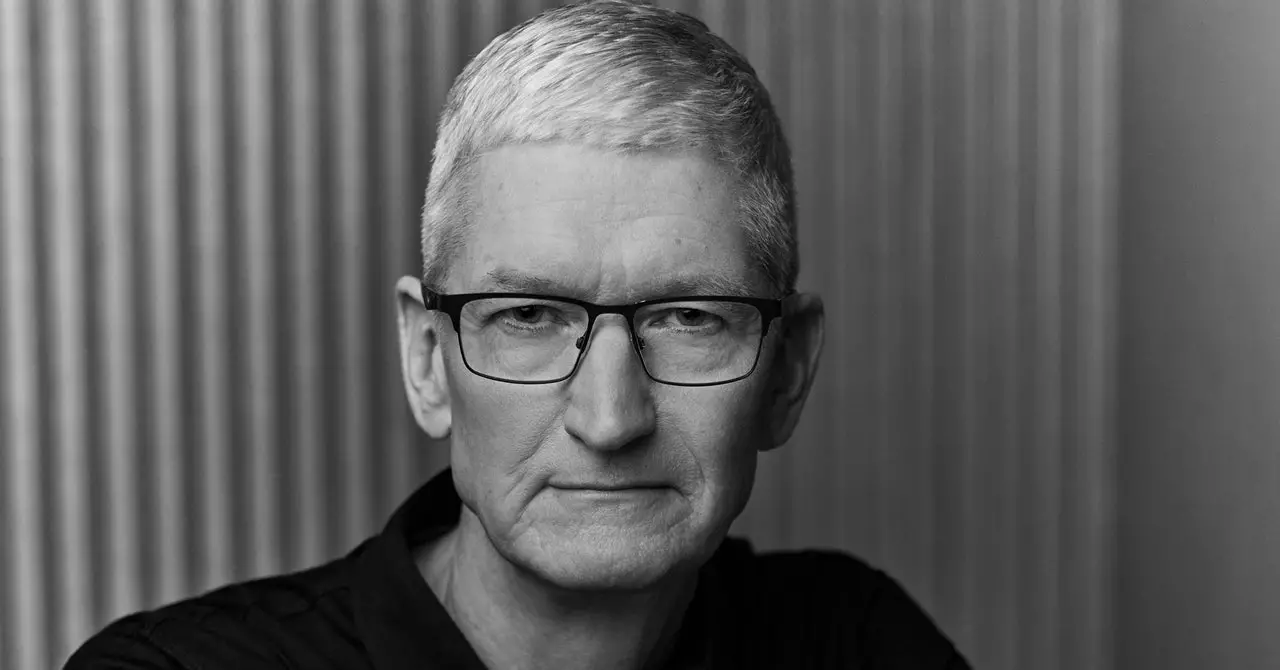The contemporary technology landscape has become a battleground where innovation reigns supreme, creating a complex dynamic for companies vying to maintain their competitive edge. At the pinnacle of this tech hierarchy is Apple, an organization renowned for its holistic integration of hardware and software. Central to Apple’s continued relevance in this fluid marketplace is the impending introduction of Apple Intelligence, the company’s first significant foray into generative AI. As I reflect on this development and the broader implications for the tech industry, it’s essential to examine the contrasts between Tim Cook’s leadership style and that of his predecessor, Steve Jobs, and to scrutinize how their philosophies have shaped the company’s trajectory.
Tim Cook’s approach is grounded in patience and long-term thinking—a stark contrast to the more aggressive, sometimes chaotic strategies associated with Steve Jobs. Cook considers the introduction of Apple Intelligence not merely as a reaction to a current trend, but as part of a 100-year vision for Apple. This strategic pivot showcases Cook’s nuanced understanding that the tech world is not simply about being the first to market; it’s about delivering a product that balances novelty with real-world usability.
While competitors have swiftly rolled out chatbots and AI-driven applications, Apple has refrained from rushing its offerings, reclaiming its position as a company that prioritizes quality over mere presence. This delayed entry into the generative AI space has raised eyebrows, prompting critiques of Apple as a company that may be falling behind. However, Cook argues that Apple’s underlying preparation—evident as far back as 2018—embodies an evolutionary readiness rather than a reactive scheme.
In earlier years, Cook made strategic moves, such as recruiting Google’s John Giannandrea, to nurture Apple’s machine-learning capabilities. This recruitment underscores a proactive stance, illustrating Cook’s commitment to embedding AI across the product spectrum rather than just launching standalone solutions. While rival companies dazzled the market with flashy AI features, Apple quietly but effectively integrated sophisticated machine learning under the hood of its existing software.
The decision to forgo a public affirmation of the now-infamous smart-car project speaks volumes about Cook’s management philosophy. While he acknowledges the failures, such as this misguided venture, the emphasis remains on the successful innovations that have emerged under his leadership, like the Apple Watch and advancements in custom silicon technology, all of which contribute to a sophisticated ecosystem that enhances user experiences.
Privacy as a Competitive Differentiator
Perhaps one of the most defining elements of Apple Intelligence is its commitment to privacy, an ethos that has flourished prominently during Cook’s tenure. In an age where data breaches and privacy concerns plague users, Apple’s insistence on device-side processing for its AI features becomes a crucial selling point. This strategy not only resonates with privacy-conscious consumers but also positions Apple as a company that respects users’ data—creating trust and loyalty.
Moreover, Cook’s assurance that complex AI computations occur within Apple’s secure data centers rather than in the cloud encapsulates a sophisticated understanding of contemporary consumer concerns. While competitors rush into cloud-based AI solutions, Apple leverages its comprehensive hardware-software integration to differentiate itself, embodying the intersection of security and innovation.
The Weight of Expectations and Future Aspirations
As I reflect on my interactions with Cook, it’s clear that he possesses a unique ability to communicate Apple’s innovations while gracefully navigating critiques. This skill has become more pronounced as the industry demands increasingly high-stakes decisions. The spotlight now rests on Apple Intelligence and whether it can meet the lofty expectations set by both users and industry analysts. The anticipation is palpable, as users eagerly await a glimpse of how Apple will redefine generative AI.
Should the initial launch fall short, there’s a strong likelihood that Cook will maintain his trademark demeanor, presenting future updates as the pinnacle of technological achievement. This raises questions about whether Apple’s iterative processes align with market demands or whether they run the risk of being seen as reactive. Nonetheless, Cook’s steady hand has adeptly steered Apple through numerous tumultuous waters, demonstrating a resilience that bolsters the company’s capability for future success.
In a world characterized by disruption, Tim Cook’s leadership is marked by a strategic embrace of long-term planning, a commitment to user privacy, and a balanced view of innovation. As Apple prepares to unveil its significant AI advancements, the tech community watches closely, recognizing that Apple’s ability to adapt will dictate not only its future but potentially that of the entire industry.

